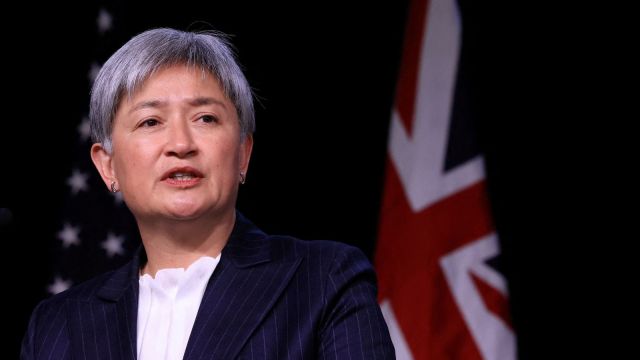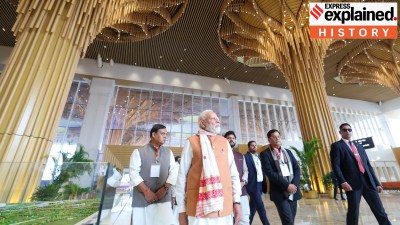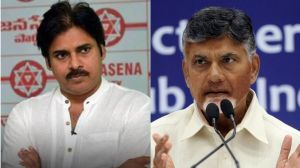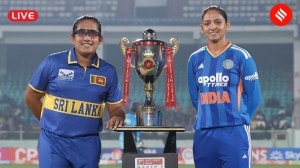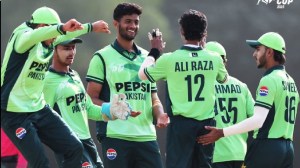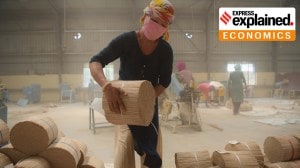Underlining that Australia wants a “deep, strong and trusted partnership” with India, Australian Foreign Minister Penny Wong said on Wednesday that her country “doesn’t support tariffs”.
On the US administration’s tariffs on India, Wong said: “I’ll leave you to comment on your bilateral relationships. I can tell you what Australia’s position is… we don’t support tariffs. We believe in the logic of the post-war economic order, that openness can enable growth, and our economy is a testament to that. Australia has developed our economy and advanced over these last decades because we have traded with the world in large part.”

Asked about US President Donald Trump’s turn against India in recent months, Wong said: “What we would want as friends of both countries, and as, very obviously, we’re an alliance partner of the United States, is to say we share so much, we share not just history, but we do share very clear objectives about the attributes of the (Indo-Pacific) region in which we live. We always encourage dialogue, and we are strong supporters of the Quad.”
The Quad grouping comprises India, Australia, the US and Japan.
Interacting with a visiting delegation of Indian journalists, Wong, when asked about India’s efforts to repair ties with China, said Beijing is a great power and is asserting its interests as great powers do, adding that some of those interests may not align with Australia’s interests.
“There will be differences in the relationship. We also have areas where we can cooperate… We cooperate where we can. We disagree where we must. And we engage in the national interest. It describes a way of dealing with the relationship which recognises that there would be areas of differences, and recognises there will be areas of cooperation, and also recognises the importance to both our countries for mature engagement. Now, that’s the approach we (Australia) take, and from my observation, it’s the approach that India seeks to take,” she said.
“I want to emphasise the value we place, the priority we place on our relationship with India. I met with Dr Jaishankar more than any other counterpart, which reflects the priority we give to this relationship,” Wong said. “We are at a time of great change. I think what you see in Australia is a very reliable, stable partner that shares a great deal of your strategic objectives, which are, what I describe as, a peaceful, stable and prosperous region in which everyone’s sovereignty is respected,” she said.
Story continues below this ad
She said there are many areas where there is “strategic alignment”, and pointed out the presence of Indian diaspora.
On the impact of tension between India and the US having an adverse impact on the Quad, she said: “We are strong supporters of the Quad, and obviously I’ll leave it to others to deal with, engage bilaterally on, issues that they want to deal with. But I would always say that… it’s good for all of us to remember what we share. And we do have a lot of shared objectives around the Indo-Pacific. And we are Quad partners not just because we’re Quad partners, but we are Quad partners because we have those shared strategic objectives.”
On the bilateral front, she recalled Quad meetings and bilateral meetings between Prime Minister Narendra Modi and Australian Prime Minister Anthony Albanese. “We want a deep, strong and trusted partnership with you…We can talk through the gamut of the whole breadth of our relationship…we do a lot together, but I think fundamentally, it comes back to this. We are in a time where the world is, the global order is, being reshaped, the regional order is being reshaped, and we have a responsibility to influence that reshaping. And we want to work with India, because we see a lot of convergence and alignment in the sort of outcomes we want from that reshaping. We see the attributes of the region that we want as being shared…So, it’s a very important time for us to keep working together,” she said.
On the recent visa fee hikes faced by international students in Australia, including Indian students, she said: “What we have is education exports… So international students coming to Australia is a very important part of our economy, and it’s also a very important part of our bilateral relationships and our regional relationships. My father was a Colombo Plan scholar to Australia. So, I’ve known through my own life the importance of that experience of education, and what that means long-term for our bilateral relationship. There have been various reforms in the education area; they are about trying to improve the quality of the educational offer, and we have been really clear. We will continue to welcome international students, but we have sought to improve the quality of that education and also to stabilise the numbers, which obviously spiked as a consequence of post-Covid.”
Story continues below this ad
On Australia’s support for India after the Pahalgam terror attack, she said: “I spoke to your foreign minister after that, and you saw, as you said, my public comments. We welcomed the ceasefire. We welcome efforts to assure peace and stability, and often, obviously, one of the key aspects of that is to counter terrorism.”
(The reporter is in Australia at the invitation of the Australian Foreign Ministry.)

